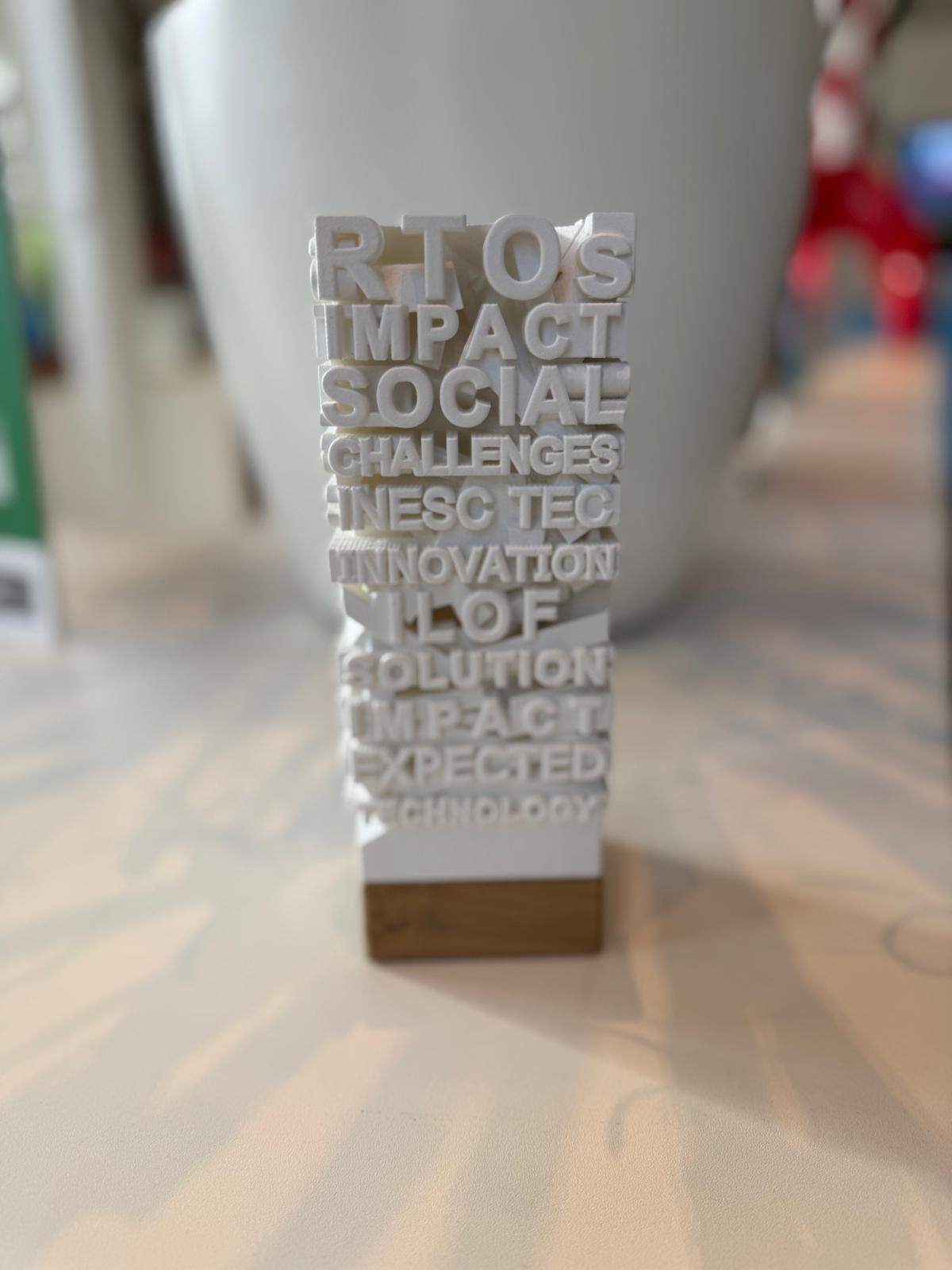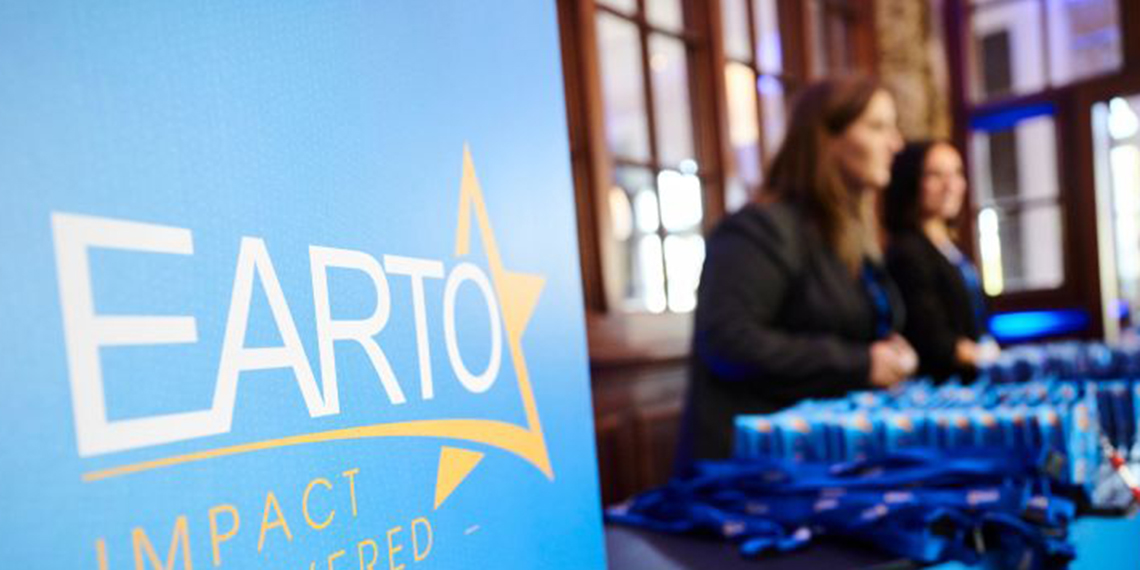INESC TEC is the winner of the European Innovation Award, presented by EARTO – a European association of science and technology organisations; each year, EARTO acknowledges innovative contributions with high social impact through two categories: “Impact Delivered” and “Impact Expected”. INESC TEC is the first Portuguese institution to win this award in the latter category, reinforcing its role as the largest engineering research and development institution in Portugal, and one of the main national centres dedicated to the transfer of technology for digital innovation.

The prize was awarded to the “intelligent Lab-on-a-Fiber”(iLof) technology, established at INESC TEC laboratories by the hands of researchers from this Institute and the University of Porto: Joana Paiva, João Paulo Cunha and Pedro Jorge. ILoF allows stratification of patients through relevant biomarkers, obtained non-invasively using an effective photonic system and subsequent identification of unique patterns using AI. In other words, biomolecular fingerprints obtained by technology open the door to personalised medicine with more accurate diagnoses and treatments tailored to the needs of said group of patients. In addition to the direct impact concerning patients – in diseases like Alzheimer’s or cancer – and healthcare professionals, there is also the potential for use in other sectors, as the precise detection of micro and nano particles is relevant in many application areas.
In fact, the detection of micro- and nano-targets is fundamental to the development of drugs, clinical trials, diagnostics and other subdomains of the OneHealth concept. However, the current solutions have a low economic efficiency and induce unnecessary discomfort in patients, which can be addressed with the iLoF innovation. This low-cost solution reduces clinical trial costs by at least 40% and triage time by up to 70%, meaning that – when applied to healthcare – it can make the process more affordable and efficient. But the main benefit of this technology is the fact that it can be applied to other domains besides healthcare – where it can, in fact, transform a series of bioengineering processes.
The iLof – winner of the European Innovation Award of 2024 – shows a relevant economic and social impact and has already been tested in a real environment by the INESC TEC spin-off –which has the same name as the technology, iLoF. “The technology has already demonstrated its impact on real pilots, allowing, for example, to save millions of euros in clinical trials, when applied to the healthcare area. By allowing the creation of a vast library of digital biological profiles, iLoF has the potential to change the paradigm of clinical trials and personalised medicine, providing a more targeted and effective approach to the treatment of diseases – which was the basis for EARTO’s recognition,” explained Daniel Vasconcelos, head of INESC TEC’s Technology Licensing Office – who monitored the technology from creation to materialisation, protection of intellectual property and valorisation through a spin-off.
ILof technology could have an impact on the global personalised medicine market, which is valued at more than €500BN. This solution not only benefits patients – by improving the accuracy of diagnostics – but also creates opportunities for new technologies in the pharmaceutical sector, reducing barriers to entry and fostering greater economic growth.
The traditional healthcare system has followed a “one-size-fits-all” approach, i.e., a single treatment approach, regardless of several other factors that are of extreme relevance when it comes to health. This strategy has proven to be very ineffective in dealing with certain complex diseases, like Alzheimer’s disease, where more than 400 clinical trials have failed in the last 14 years. These data show the urgent need for personalised treatment strategies, which this technology can provide.
Hence, and concerning this domain, the iLof has the potential to revolutionise healthcare by generating accurate optical fingerprints from blood samples, simplifying the process and patient experience, and reducing any costs associated with clinical trials or screenings.
The INESC TEC iLoF spin-off is now expected to launch a commercial solution based on this technology for clinical trials, over the next three years. This spin-off has already carried out pre-commercial trials with a major pharmaceutical company, during which it was able to quantify some of the potential benefits of iLoF technology. Currently, the iLoF spin-off is part of the international study Bio-Hermes-002, which aims to revolutionise the research and treatment of Alzheimer’s disease. INESC TEC keeps developing technological solutions in this area of knowledge, some with the iLoF spin-off, seeking new ways to improve and increase the Institute’s impact on societal challenges related to OneHealth.
This is not the first time that INESC TEC achieved EARTO’s top three. In 2023, the Institute reached third place in the “Impact Expected” category with MyNPK – Precision fertilization sensing technology. The EARTO Association includes more than 350 members from more than 30 countries.
The researchers mentioned in the article are affiliated to INESC TEC, UP-FEUP and UP-FCUP.


 News, current topics, curiosities and so much more about INESC TEC and its community!
News, current topics, curiosities and so much more about INESC TEC and its community!